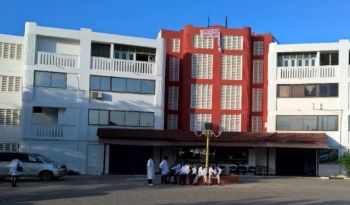Nutrition learning gaps in the undergraduate curricula of Nursing and Medicine degree and diploma programs in Tanzania Mainland
Abstract
Background
Nutrition has been widely ignored in the curricula of many health professional training programs in Sub-Saharan African countries. The present review was conducted to explore the adequacy of medical and nursing curricula in training graduates to treat, educate effectively, and counsel patients/clients with nutritional disorders in Tanzania.
Methods
An assessment of accredited medical and paramedical curricula in mainland Tanzania. The assessment followed Stufflebeam's CIPP model (context, input, process, and product) to enhance methodological rigour and transparency.
Results
Of the twelve curricula studied, only one had a dedicated course for nutrition. In the undergraduate medicine degree curriculum, only 119 out of 6580 hours over five years were allocated for nutrition training, which is merely 1.7% of the total curriculum hours. Similarly, in the undergraduate nursing degree curriculum only 370 hours out of 5280 over four years were allocated for nutrition training, which is equivalent to 0.07% of the total hours. In the paramedical diploma programs of clinical medicine and nursing, nutrition content was scattered among various courses within the curriculum. Most curricula were teacher-centred with limited use of validated methods to assess trainee on skills such as Observed Structured Practical/ Clinical Examination.
Conclusions
Based on this assessment of accredited curricula, nutrition receives scant attention in medical and paramedical education in mainland Tanzania. Thus, it is imperative to support integrating stronger nutrition content into medical and paramedical schools focusing on skills and attitudes to enhance the efficient implementation of the nation’s nutrition policies and strategies.

Authors retain all copyrights. In making a submission to World Nutrition, they are certifying that all material is theirs except quotations, as indicated, and that they have obtained permission for any photos, tables, or graphics taken from other publications or websites.




